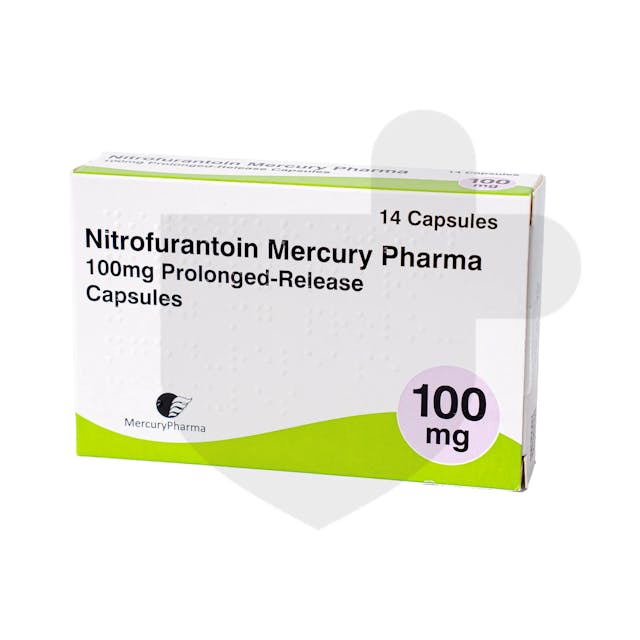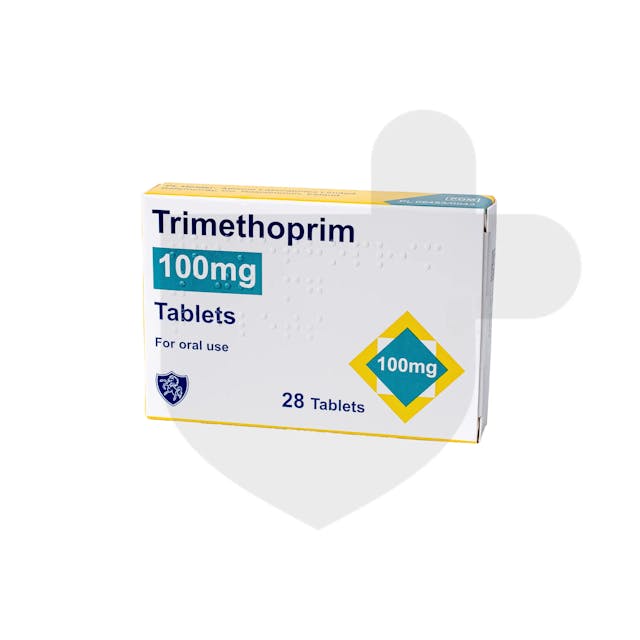Cystitis
Treatment & Medications
With NowPatient's private treatment plans you can treat Cystitis safely and easily in a few simple steps. Get started by selecting the available treatments you are interested in below or by hitting the start consultation button.
This content is intended for UK audiences only
Available treatments
Compare treatments
Get started with the right treatment for you
Treatments & Medications
delivery
service

Cystitis is a common urinary tract infection (UTI) mainly affecting women. Cystitis will often not need treatment, however, sometimes you may need to take medication to help clear up your symptoms. Here, we will take a closer look at what causes cystitis, its symptoms, diagnosis, treatment options, and how to prevent you from getting cystitis in the future.
What is Cystitis?
Cystitis is essentially inflammation of the bladder caused by a bladder infection. Symptoms include pain, swelling, a feeling of discomfort in the bladder and changes in urination. Cystitis may occur in men and women, but due to anatomy, it is actually more common in women. In men, inflammation of the prostate gland can cause symptoms similar to those of cystitis.
What causes Cystitis?
Cystitis may be caused by a variety of reasons, such as bacterial infections, a weak immune system, reactions to medication, hormonal changes after menopause, radiation therapy, or chemical irritants.
Bacterial cystitis, the most common cause of cystitis, occurs when bacteria, such as Escherichia coli (E. coli), enters the bladder through the urethra. Bacterial cystitis tends to be caused by poor hygiene and sexual activity.
Certain medications, such as those taken for chemotherapy can irritate the lining of the bladder, causing drug-induced cystitis. Radiation therapy, used for the treatment of cancer can cause radiation cystitis. Symptoms include inflammation and damage to the bladder. Long-term use of urinary catheters may also lead to bacteria entering the bladder, leading to foreign body cystitis.
Underlying health conditions, such as kidney stones, diabetes, an enlarged prostate, or spinal cord injury can also lead to cystitis. To manage cystitis in these cases the underlying condition needs to be treated.
Bubble baths, douches and certain forms of contraception such as spermicides may irritate the bladder, also causing chemical cystitis.
Symptoms of Cystitis
The symptoms of cystitis will depend on the underlying cause. Common symptoms include pain, burning or stinging when urinating, urinating more often, incontinence, difficulty emptying the bladder, changes in the colour and smell of urine and pain in the abdomen. Symptoms in young children with cystitis may include fever, irritability, lack of appetite, and vomiting.
Diagnosis of Cystitis
A healthcare provider will need to carry out a medical assessment. They will ask about your symptoms, any medical history, and relevant risk factors. They will take a urine sample to check for bacteria, blood, or other potential abnormalities. A urine culture may be taken, to identify the bacteria causing your infection. Imaging techniques may also be used to assess your symptoms. These tests will help to identify any abnormalities or conditions that may be causing your cystitis.
Treatment of Cystitis
Treatment for cystitis will depend on the cause and the severity of your symptoms. Bacterial cystitis is treated with antibiotics to clear any infection. The antibiotic prescribed to you will depend on the type of bacteria, the severity of your symptoms, and any other health conditions you may have. You are recommended to complete the course of antibiotics even if your symptoms of cystitis clear. Failing to complete your course may lead to bacterial resistance.
Interstitial cystitis (Bladder pain syndrome), is a chronic or long-term form of cystitis. Treatment will require a combination of medications to relieve any pain and inflammation and changes to your lifestyle.
The underlying cause will need to be identified and treated if you have non-infectious cystitis. This may require stopping the treatment of a particular medication or identifying and avoiding what is causing the inflammation. You may also be given advice on how to manage your pain to relieve discomfort.
Do home remedies work for Cystitis?
Certain home remedies can also help relieve symptoms and help with healing. These include changes to your lifestyle, hydration and pain relief.
Self-care measures include heat pads applied to your lower abdomen, good hygiene, and avoiding the triggers that cause your symptoms.
Painkillers, available over the counter from your local pharmacy, such as ibuprofen, will help reduce any pain or discomfort you have. Also, medication containing ingredients such as potassium citrate will help to reduce the acidity of your urine. The effectiveness of these products is however not clear. Follow the dosage instructions or speak to your healthcare provider if your symptoms persist or become worse.
Make sure you drink plenty of water. This will help keep you well hydrated and clear out any bacteria. This will keep your bladder healthy. Also, avoid drinks containing caffeine, alcohol, or acidic drinks that will irritate your bladder.
Preventing Cystitis
Preventing cystitis is crucial when it comes to managing the risk of infections. Good hygiene is essential to prevent cystitis. For women, this includes wiping front to back when using the toilet, avoiding personal care products that cause irritation, and practising safe sex.
Fully emptying the bladder, peeing after sex, and not holding urine for long periods can all also reduce the risk of bacterial infections. Drinking plenty of fluids to stay well-hydrated, wearing breathable underwear, and not wearing tight clothing, can all contribute to your bladder health, reducing your chances of developing cystitis.
Cystitis in specific populations
Cystitis is most common in women, but can also occur in men. In men, cystitis is associated with underlying health conditions, such as an enlarged prostate.
Children with cystitis may have symptoms such as a fever, changes in appetite or irritability. Children need to be treated as a matter of urgency if they do have cystitis to prevent further complications.
Cystitis in the elderly can be more difficult to diagnose due to any age-related changes and other medical conditions they may have. Cystitis, in the elderly, may be easily missed as symptoms may include confusion, a common condition in older adults.
Complications of Cystitis
Cystitis is not a serious condition, but if left untreated or recurrent infections occur it can lead to complications, such as kidney infections (pyelonephritis) and hematuria. Kidney infections may require hospitalization and antibiotics, while hematuria is often harmless and resolves on its own.
Frequently Asked Questions
Is cystitis contagious?
No, cystitis is not contagious, even though it is an infection. It cannot be transmitted to others.
How is cystitis diagnosed?
Diagnosis involves examining the symptoms, taking a medical history, and a physical examination. A urinalysis test may be carried out to test for any signs of an infection. Further tests such as a cystoscopy may also be carried out if required.
How is cystitis treated?
Treatment depends on the severity of your symptoms and the cause. Cystitis, in some cases, may resolve on its own. However, antibiotics such as, nitrofurantoin or trimethoprim are commonly used. Paracetamol or ibuprofen may also be taken to relieve pain.
Can I diagnose cystitis myself?
You are recommended to speak to a healthcare professional for a diagnosis of cystitis, to prevent incorrect diagnosis and a delay in treatment.
How soon will antibiotic treatment work?
Antibiotics will begin to work within one or two days of starting treatment. You must complete the course of antibiotics as prescribed, to ensure the infection is cleared and to reduce the risk of reinfection.
How can I relieve the pain?
Over-the-counter painkillers, such as paracetamol or ibuprofen may be used to relieve pain. Follow the dosage instructions on the patient information leaflet provided with your medication.
What if antibiotics don’t provide relief?
If you do not see an improvement in your symptoms within 48 hours of starting treatment with antibiotics, speak to your healthcare provider for medical advice.
Can I drink alcohol while on Cystitis antibiotics?
It is safe to drink alcohol while taking most antibiotics. However, alcohol may make you feel unwell when you have an infection. Also, metronidazole, in particular may cause adverse reactions if you drink alcohol.
Does cranberry juice help with cystitis?
There is limited evidence to support the use of Cranberry juice for the treatment of cystitis. However, some studies do suggest cranberry juice may help prevent urinary tract infections. Speak to a healthcare professional for further advice.
Conclusion
To treat cystitis effectively, a correct diagnosis is essential. Based on this, treatment and prevention can be addressed. Speak to your doctor or pharmacist for an early diagnosis and treatment to prevent complications from cystitis.
Sources
What is NowPatient
Telehealth and Online Pharmacy
NowPatient is a licensed online pharmacy and doctor service that is available around the world. Our service is FREE and packed with valuable features that can benefit your health such as medication reminders, educational blogs, medically approved symptoms checker, UK NHS online pharmacy, private treatment plans, Rx Advantage card, health conditions information, affordable medications options, genetic testing, home test kits, health risks, pollen meter, air quality monitor, weight loss plans, drug savings programs and lots more!

WHY WE BUILT NOWPATIENT
To improve the lives of everyone by making high-quality care accessible and convenient
We are here to improve lives. Our service gives you access to smart features and resources that can help empower you to take control of your health and improve your health outcomes. All this, in one place, for FREE. We strive to bring a fresh perspective to managing health. NowPatient can be accessed by downloading the App or using your web browser.
Download our app today

Can I trust NowPatient
Meet our medical team
We are a passionate group of clinicians and medical writers covering a broad range of specialities with experience operating in health systems in the United Kingdom & United States. Providing excellent care and advice is at the heart of everything we do. You can read more about our medical team by visiting the medical team page or learn more about how we curate content by visiting our editorial process

